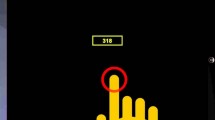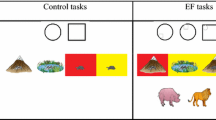Abstract
Depressive psychomotor retardation may impair performance on timed tests. By comparison word association measures of verbal fluency are reportedly unaffected by depression. Comparisons of a brief psychomotor test with a measure of verbal fluency may therefore prove useful when there is a concern that depression may be undermining adaptive functioning, assuming both measures display: (1) broad-spectrum sensitivity to brain impairment, (2) differential vulnerability to depression, and (3) moderate correlation in nondepressed persons. Digit Symbol (DS) and the “FAS” measure of verbal fluency are sensitive to genuine dementia, satisfying the first criterion. We found that depressed schizophrenics performed at significantly lower levels on DS, but not on FAS, than nondepressed schizophrenics. The two groups differed significantly on a discrepancy score derived by subtracting FAS from DS scores; normals obtained discrepancy scores highly similar to those of nondepressed schizophrenics. As the normals had higher DS and FAS scores, this discrepancy-score similarity suggests that this index may have wide application. The third criterion is satisfied by the findings of a 0.64 correlation between DS and FAS scores adjusted for age (DS and FAS) as well as gender and educational attainment (FAS) in nondepressed samples. Implications for further research and clinical applications are discussed.
Similar content being viewed by others
References
Borkowski JG, Benton AL, Spreen O (1967) Word fluency and brain damage. Neuropsychologia 5:135–140
Derogatis LR (1983) SCL-90-R administration scoring, and procedures manual II for the revised version. Clinical Psychometric Research, Towson, Md
Goodwin DM (1989) A dictionary of neuropsychology, Springer, Berlin Heidelberg New York
Hawkins KA, Sledge WH, Orleans JF, Quinlan DM, Rakfeldt J, Hoffman RE (1993) Normative implications of the relationship between reading vocabulary and Boston Naming Test performance. Arch Clin Neuropsychol 8:525–537
Johnson DAW (1981) Studies of depressive symptoms in schizophrenia. Br J Psychiatry 139:89–101
Kendrick DC (1967) Across-validation study of the use of the SLT and DCT in screening for diffuse brain pathology in elderly subjects. Br J Med Psychol 40:173–178
Kronfol Z, deS Hamsher K, Digre K, Waziri R (1978) Depression and hemispheric functions: changes associated with unilateral ECT. Br J Psychiatry 132:560–567
Lezak MD (1983) Neuropsychological assessment, 2nd edn., Oxford University Press, New York
Lishman WA (1978) Organic Psychiatry. Blackwell Scientific Publications, Oxford.
MacGinitie WH, MacGinitie RK (1989) Gates-MacGinitie Reading Tests: manual for scoring and interpretation, levels 7/9 and 10/12, forms K and I, 3rd edn. Riverside, Chicago, Il.
Pernicano KM (1986) Score differences in WAIS-R scatter for schizophrenics, depressives, and personality disorders. Psychol Rep 59:539–543
Wechsler D (1981) WAIS-R Manual. The Psychological Corporation, Cleveland, Ohio
Wells CE (1979) Pseudodomentia. Am J Psychiatry 136:895–900
Author information
Authors and Affiliations
Rights and permissions
About this article
Cite this article
Hawkins, K.A., Sledge, W.H., Orleans, J.F. et al. Can digit symbol-verbal fluency comparisons facilitate detection of pseudodementia?. Eur Arch Psychiatry Clin Nuerosci 244, 317–319 (1995). https://doi.org/10.1007/BF02190410
Received:
Accepted:
Issue Date:
DOI: https://doi.org/10.1007/BF02190410




